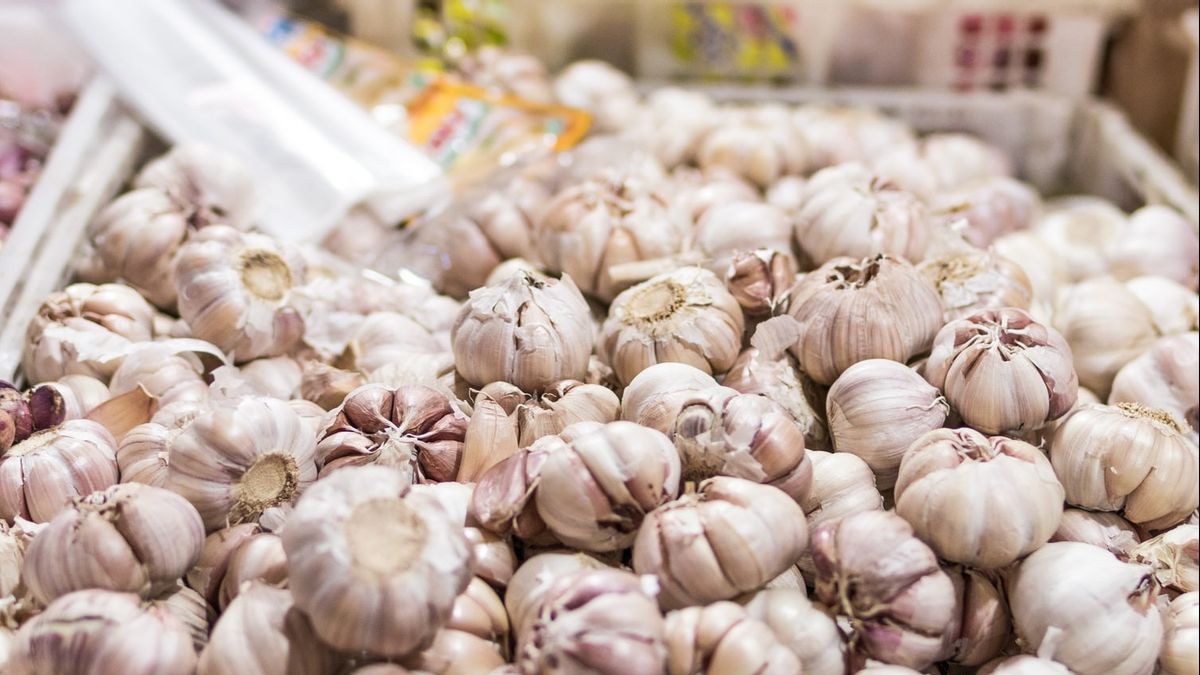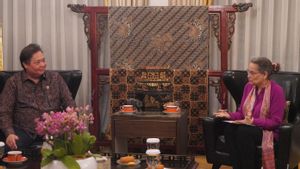JAKARTA - The policy of the Ministry of Agriculture in providing horticultural product import recommendations (RIPH) for garlic commodities has drawn criticism. The council and a number of groups have called on law enforcers to also supervise the issuance of these recommendations.
Apart from the lack of transparency in the provision of quotas and importers, there are allegations of privileging of certain parties in this regard. Transparency is needed to prevent imitation importers and buying and selling quotas.
Member of Commission IV Andi Akmal Pasludin revealed that many procedures were violated in this case. Many new companies can be recommended but do not follow RIPH's absolute requirements. During the Ministry of Agriculture's hearing (RDP) with the DPR, the House revealed many irregularities. He hopes legal supervisors like the KPK will investigate this.
"Don't just buy and sell quotas. This is just a piece of capital from RIPH's approval, it can be sold anywhere. This makes our food uncontrollable. We want imports filtered," said Andi Akmal, Thursday, February 20.
At RDP, Member of Commission IV DPR RI from the Golkar faction, Alien Mus, also questioned the same thing. He questioned one company whose imports were more dominant than others in the fruit RIPH.
"The Ministry of Agriculture has just issued RIPH permits to 3 companies, namely Laris Manis Utama, Cherry Fruit, Karunia Alam Raya Sejati. But here there is an irregularity between the three companies that there is one company that actually exceeds the number of imports," he said.
Laris Manis Utama has imported 11,000 tonnes of horticultural commodities. Meanwhile, Cherry Fruit was given imports of 412 tons. Meanwhile, the Gift of Alam Raya Sejati was 350 tons.
Likewise with the total permits that have been issued from a total of 100 companies that have applied for RIPH licenses, Alien Mus questioned why only 13 companies had been granted permits.
Regarding RIPH, an economist at the Institute for Development of Economics and Finance (Indef), Enny Sri Hartati, supports the DPR in questioning the garlic import quota.
"Now, the conditions are reversed, we need 100 and only 20 are available, then the remaining 80 are imports. How is the story using the quota system? That is definitely not true," he said.
Enny also criticized the conditions for importation when planting. He thought it was very strange. Farmers and traders are two very different professions.
Regarding imports, the Ministry of Trade admits that currently only 62,000 tonnes of garlic have passed the application for an Import Permit (SPI) from the 103,000 ton quota given by the Ministry of Agriculture.
Minister of Trade (Mendag) Agus Suparmanto said, a number of new importing companies must be examined in depth regarding their SPI application documents.
"KMI checks again, especially if our new company has to check," said Agus after attending the launch of General Kopi Nusantara Buwas at the head office of Bulog, Jakarta, Wednesday, February 19.
The Ministry of Agriculture, on the other hand, stated that there was no conflict of interest in providing RIPH. Director General of Horticulture, Ministry of Agriculture Prihasto Setyanto, after a hearing with Commission IV of the DPR, denied the accusation that RIPH was not transparent. Prihasto said that RIPH had been given openly. He also denied that there was a conflict of interest in the selection of importers. However, he did not disclose the companies that were given RIPH with their respective quotas.
"Who said less openly. No, just guesswork. Everything is open," he said.
The English, Chinese, Japanese, Arabic, and French versions are automatically generated by the AI. So there may still be inaccuracies in translating, please always see Indonesian as our main language. (system supported by DigitalSiber.id)












